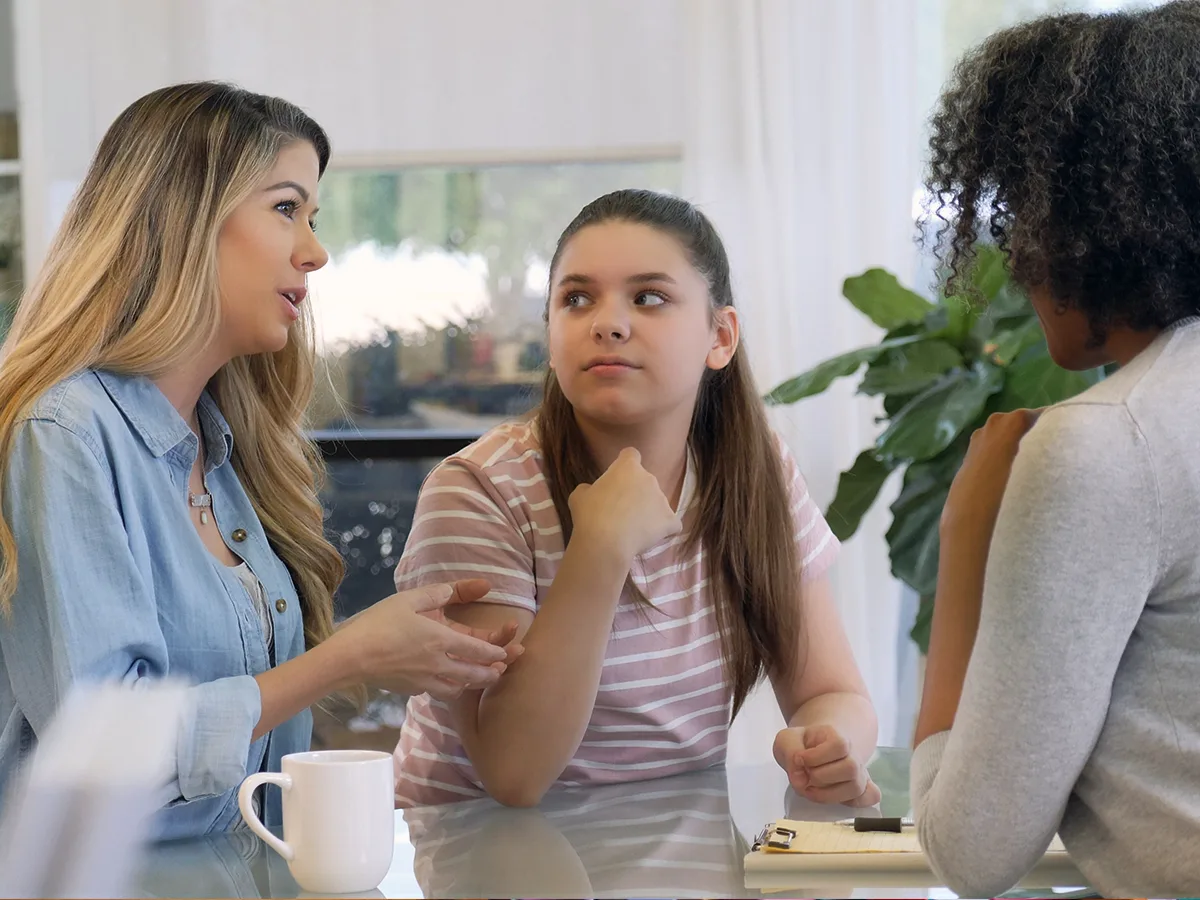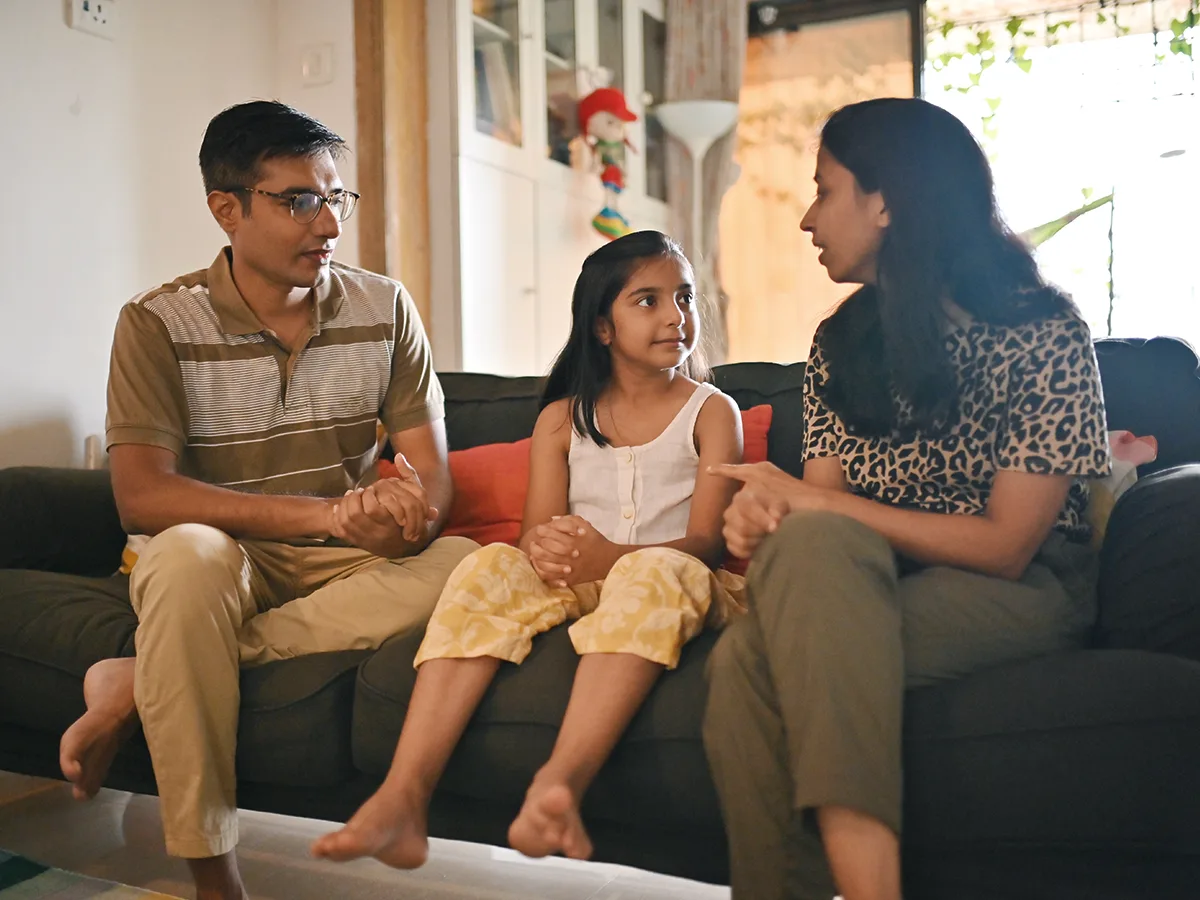FAQs about having your child attend IEP meetings

At a glance
Attending their own IEP meetings can help kids learn self-advocacy.
Having your child at the IEP meeting reminds the team that your child is more than the information in the IEP.
Your child doesn’t have to stay for the entire IEP meeting.
You may know parents who have their child attend IEP meetings, and you may wonder if you should do the same with your child. But how does that work? Do kids participate or just sit and listen? Is there a real benefit to having them attend?
Here are answers to some common questions parents have about their child coming to an IEP meeting.
At what age should my child start attending IEP meetings?
There’s no specific time to begin bringing your child. The (IDEA) says that students should be included in their own meetings “whenever appropriate.” And a student must be invited when the IEP meeting starts focusing on transition planning. That varies from state to state but is usually when the student is between the ages of 14 and 16.
That doesn’t mean your child can’t start coming to meetings sooner, however. Self-advocacy is a skill that comes with practice. Having your grade-schooler come to an IEP meeting can help teach your child that skill.
You can build the foundation for self-advocacy in even younger children, too.
What should my child do at an IEP meeting?
There are no rules for what your child should do at an IEP meeting. For some kids, just being present at the meeting and listening can be an act of self-advocacy. As kids get older, they may have more to contribute, especially when it comes to talking about what’s going well and what they’re struggling with.
As the conversation turns toward plans after high school, it’s likely your child will take a much more active role in helping to set goals.
What are the benefits of having my child there?
There are many benefits of having kids attend IEP meetings. It gives them the chance to be an active participant in their own education. Here are a few other benefits to consider:
It lets your child see what happens “behind the scenes,” taking the mystery out of what happens when the IEP team gets together.
It gives the team a chance to interact with and see your child in a different way. How your child interacts with you may be very different from what the team sees at school.
It gives kids a chance to provide firsthand feedback on how their accommodations and program are working for them.
It also gives your child an opportunity to think and practice talking about their strengths and weaknesses.
It allows your child to hear about annual goals and understand how they’ll be measured.
It reinforces that the team is planning for an actual child — that your child is more than just the information on paper. Sometimes it can be easy to forget this when the team starts talking about things like evaluation results and classroom performance.
Does my child need to prepare for the meeting?
If your child decides to attend an IEP meeting, it’s a good idea to talk to them ahead of time about what will happen at the meeting. You may even have to explain what an IEP is and why your child has one. It’s a good time to start talking with your child about their challenges, as it’s a conversation that will continue over the years.
Your child may want to prepare a short statement to share with their teachers. You can help your younger child by filling out a self-awareness worksheet together. This can help your child better understand their strengths and weaknesses. You can help your older child by talking with your teen about what they want to do after high school and what their options are.
What if there are things I don’t want my child to hear?
Your child doesn’t have to stay for the whole meeting. The IEP team may need to talk about issues that might be embarrassing or upsetting to your child.
If you know your child is coming to a meeting, consider letting the team know ahead of time so the agenda can be set in advance. That way your child could come for the first or last half of the meeting.
Keep in mind that talking about behavior issues or differences of opinion about services and supports is different from other things you may not want your child to hear. By having your child there when you talk through disagreements, you send a message to the team. You’re saying that you expect they won’t say anything about your child that they wouldn’t say in front of them.
Being prepared yourself can help your child feel more comfortable about attending the meeting. Explore a checklist of questions to ask before and during the IEP meeting. Learn more about your role in the IEP process. And read one mother’s story of why she felt better bringing someone to the IEP table with her.
Key takeaways
Students must be invited when the IEP team starts focusing on transition planning, but they can start coming sooner than that.
You can prepare your child for what will happen at the IEP meeting.
It’s OK for your child to hear or participate in conversations that involve differences of opinion.




